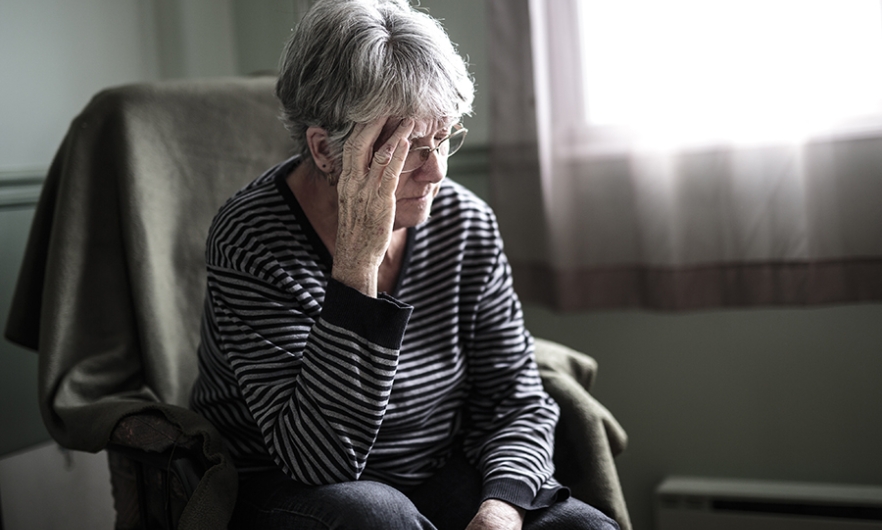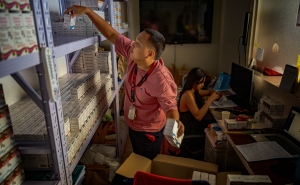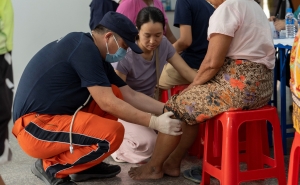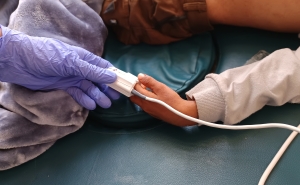Ageism, Insufficient Leadership, Lack of Data Among Top Reasons Why Elder Abuse Remains Widespread but a Low Global Health Priority, Study Finds

While one in six individuals 60 plus years of age experience elder abuse globally, little attention and few resources are devoted to addressing the issue. In what is believed to be the first study of its kind, a global team of researchers investigated why organizations, governments, and politicians continue to under prioritize elder abuse.
The study was led by researchers from the WHO, the University of Sherbrooke, and the Johns Hopkins Bloomberg School of Public Health. It was published July 8 in Lancet Healthy Longevity.
Elder abuse—defined as an act that occurs within any relationship where there is an expectation of trust and causes harm or distress to an older person—can include acts of physical and psychological abuse, financial or material abuse, and sexual abuse or neglect.
To investigate the current climate surrounding elder abuse, researchers conducted a systematic literature review and a series of 26 interviews with key experts in the field. The researchers found the primary factors contributing to the low priority of elder abuse were associated with three main areas:
- The complex nature of the problem
- The policy environment
- The capabilities of advocates concerned with the prevention of elder abuse
Complexity of the Issue
The nature of the issue of elder abuse is inherently complex because abuse can exist in many different forms. Cross-cultural differences must also be considered when attempting to enact policies and initiatives; and preserving the autonomy of older adults while also ensuring the protection of vulnerable individuals is crucial.
Pervasive ageism, coupled with the shame and stigma often associated with abuse, also greatly contributes to the complexity of addressing the problem, says Yusra Shawar, PhD, study co-author and an assistant scientist in the Department of International Health at the Bloomberg School. Additionally, there is some uncertainty and unawareness regarding the estimates of the prevalence of elder abuse among decision makers worldwide.
Policy Environment
Recent events and existing global legal and organizational infrastructures, which exist to help create humanitarian reform, were found to be underutilized by the elder abuse prevention advocate community. For example, the 2030 Sustainable Development Goals, UN Decade of Healthy Ageing, World Elder Abuse Awareness Day, and the COVID-19 pandemic, could have all been used to increase attention towards the issue of elder abuse and result in meaningful policy development. According to the study, however, efforts fell short in capitalizing on their potential.
Capabilities of Advocates
Looking inward to the elder abuse prevention advocate community, the researchers found there is insufficient leadership to effectively coordinate and fund prevention initiatives, an absence of alliances with existing groups working on similar issues, and an overall lack of consistency in agreement about simple and effective solutions to abuse.
Recommendations
The researchers note that improving global attention to elder abuse is essential and there are opportunities to do so, such as:
- Improving the framing of the issue so elder abuse is considered both a human rights issue and a public health problem
- Constructing a consistent understanding of the definition of elder abuse and its potential solutions
- Developing partnerships with organizations who have proven resources and influence in global conversations
- Establishing a prominent leadership agency to build and coordinate the global network of advocacy
These four main improvements can help to effectively shift the topic of elder abuse toward the forefront of global initiatives. Shawar is optimistic, saying, "We are already seeing our findings begin to inform needed and critical discussions around elder abuse among actors engaged in the UN Decade of Healthy Ageing. I hope this is just the beginning for getting this important subject on global and national agendas.”
Factors shaping the global political priority of addressing elder abuse: a qualitative policy analysis was written by Christopher Mikton, Laura Campo-Tena, Yongjie Yon, Marie Beaulieu, and Yusra Ribhi Shawar.
The study was funded by the World Health Organization.





